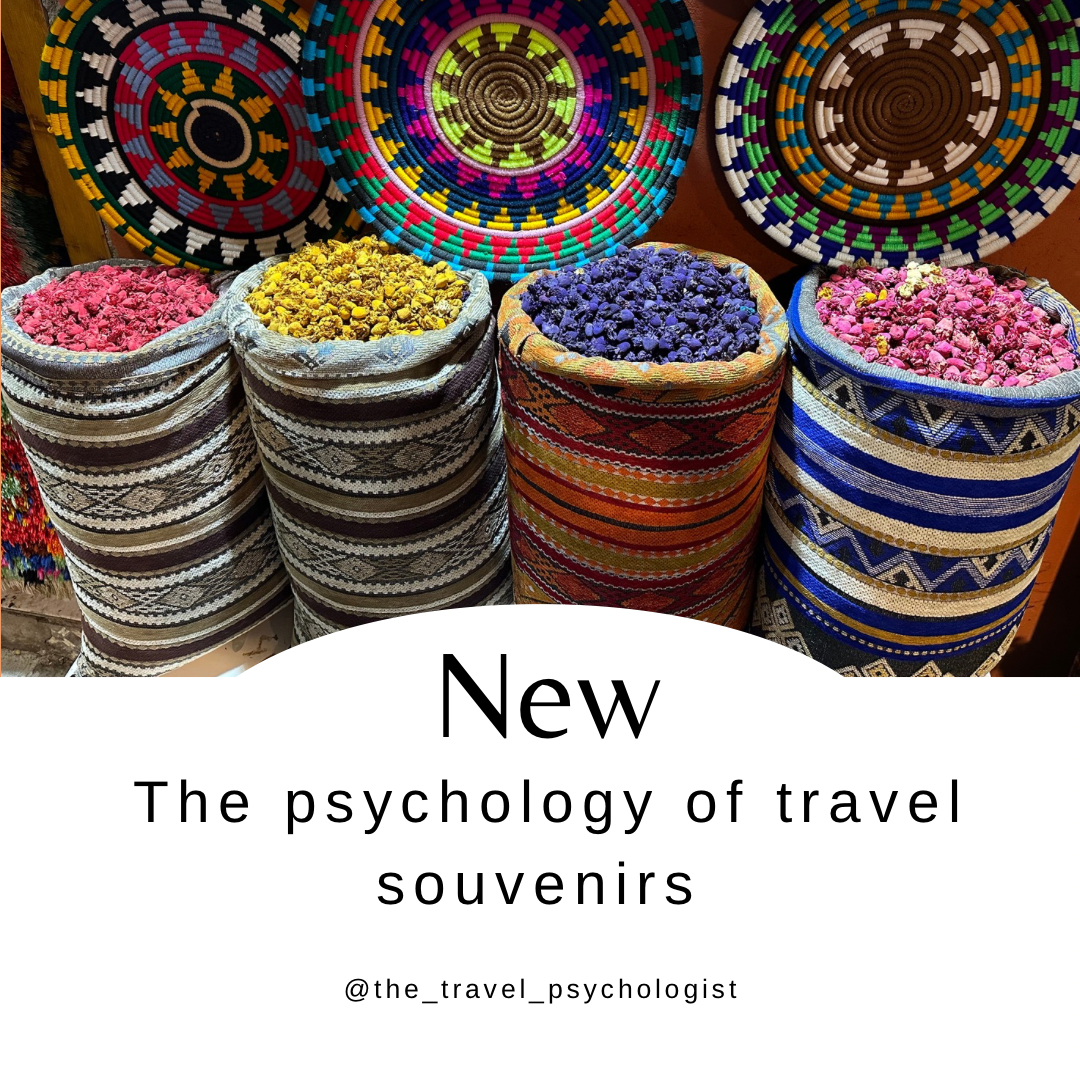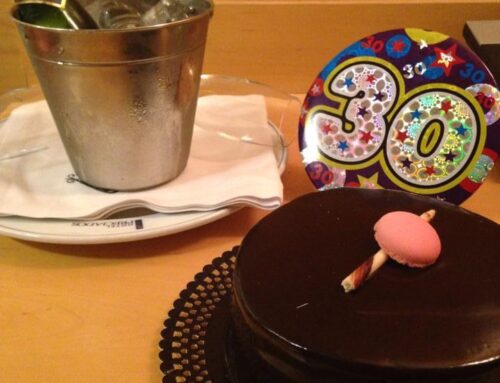Dr Nicola Cann, Educational Psychologist & Regular Contributor
For many of us, souvenirs are a key part of the travel experience. Whether it’s fridge magnets, ‘I Love NYC’ t-shirts, or local handicrafts, many of us have a desire to bring back something from our holidays and adventures. Souvenir buying also represents a significant proportion of the tourism economy globally, showing just how popular this is around the world (Shen & Lai, 2022).
But why do we do it? Research has been limited on this topic until recently. Souvenir buying has previously been thought to be all about status – filling our homes with evidence that we are adventurers who have been to exotic far-away places. But more recently it’s come to be seen as more nuanced than that, with souvenir buying offering opportunities for self expression, personal development, and maintaining social connections (Morgan & Pritchard, 2005).
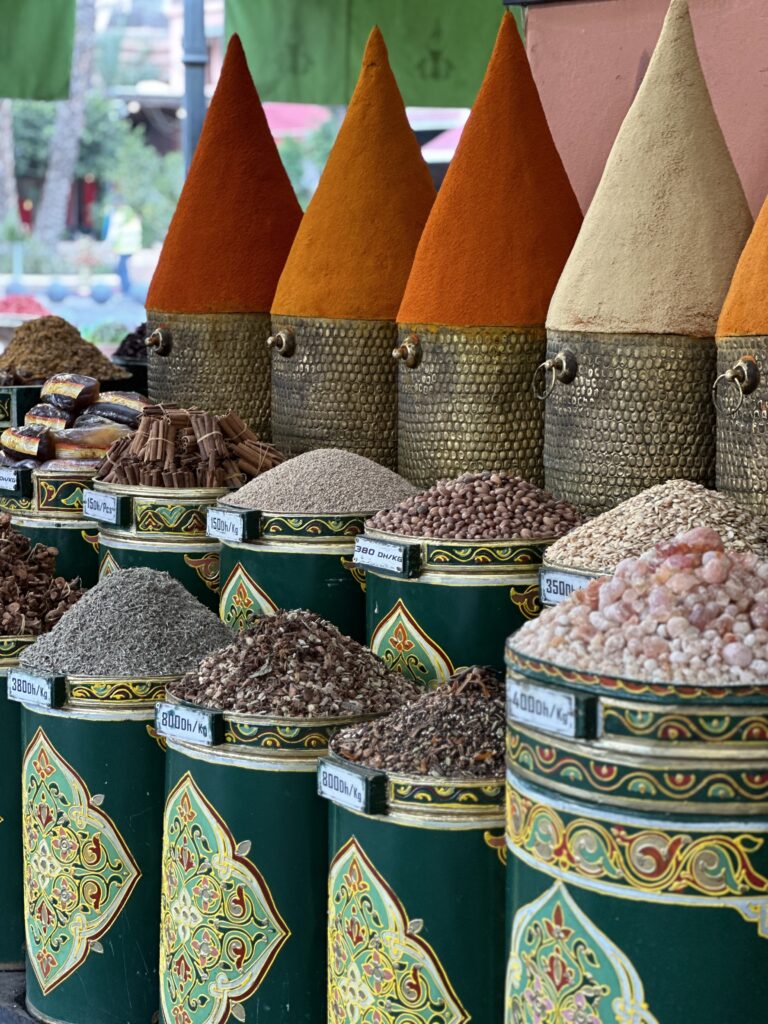
Why do we buy travel souvenirs?
Whatever the purpose, it’s clear that souvenirs provide a unique psychological experience for the buyer. So what are the main reasons that people buy souvenirs?
Souvenirs as evidence of our adventures
One of the simplest reasons for buying souvenirs is to provide evidence of our adventures. Displaying that wall hanging from Indonesia in the living room, or serving wine to your friends in the carafe from Spain, creates talking points and encourages people to enquire about your travels (Wilkins, 2011). In this way souvenirs can become symbols of status gaining us cultural capital with our friends and family (Morgan & Pritchard, 2005).
But this is not just about bragging rights. Displaying souvenirs can be a way for us to show other people who we are beyond the version of us that others see on a day-to-day basis. Souvenirs can also serve as evidence to ourselves that we have had exciting experiences outside of our regular lives, and can help us differentiate ourselves from others because of our unique travel experiences (Wilkins, 2011).
Souvenirs as gifts
One of the main reasons people buy souvenirs is for gifts for the people back home. For example, I have a friend who insists on buying a fridge magnet for every member of his family every time he goes away. But I’ve never understood the appeal for the family members on the receiving end. Why would you want a host of fridge magnets from places around the world that you’ve never visited?
When I looked into the psychology of this it started to make more sense to me. The research suggests that we buy souvenirs as gifts as a way to show others we are thinking of them during our trips. In this way souvenirs can become a way of maintaining social connections with your network back home. A symbol of our ongoing connection even while we’re out exploring the world (Wilkins, 2011). Maybe there’s even an evolutionary connection here.
Souvenirs that prompt memories
Another key reason for souvenir buying is to bring back something tangible that will evoke memories of our trip. Once a souvenir is back home it still has the power to transport us across time and space, back to the original experience (Morgan & Pritchard, 2005). And you don’t need to have bought clogs from The Netherlands, or a boomerang from Australia. The souvenir doesn’t need to be an obvious representation of the place in order to evoke strong memories. We imbue our souvenirs with meaning, especially when the experience of buying them has been memorable (Li, 2023). For example I have a slinky French dress that I bought in a boutique in Zurich – I had so much fun trying on all of the beautiful dresses and chatting with the boutique owner that now, whenever I wear the dress, I’m transported back to the summer I spent in Switzerland.
Souvenirs that represent who we are or who we would like to be
In the past identity has been thought to be fairly static, but more recent conceptualisations recognise identity as fluid and socially constructed. Our sense of who we are is significantly tied to our personal stories and experiences. Holidays can therefore present opportunities to be versions of ourselves that don’t get to shine during our ‘normal’ lives (Morgan & Pritchard, 2005). We can be more relaxed, more adventurous, more gregarious. Souvenirs can become symbols that represent these alternative identities and our relationships with a particular time, place or culture (Shen & Lai, 2022). That miniature Eiffel Tower can therefore come to represent not just the memory of an exciting trip, but also the memory of alternative versions of ourselves. By imbuing souvenirs with meaning in this way we are bolstering our own sense of self. The way we choose to display our souvenirs tells us how we are choosing to communicate this sense of self to others.
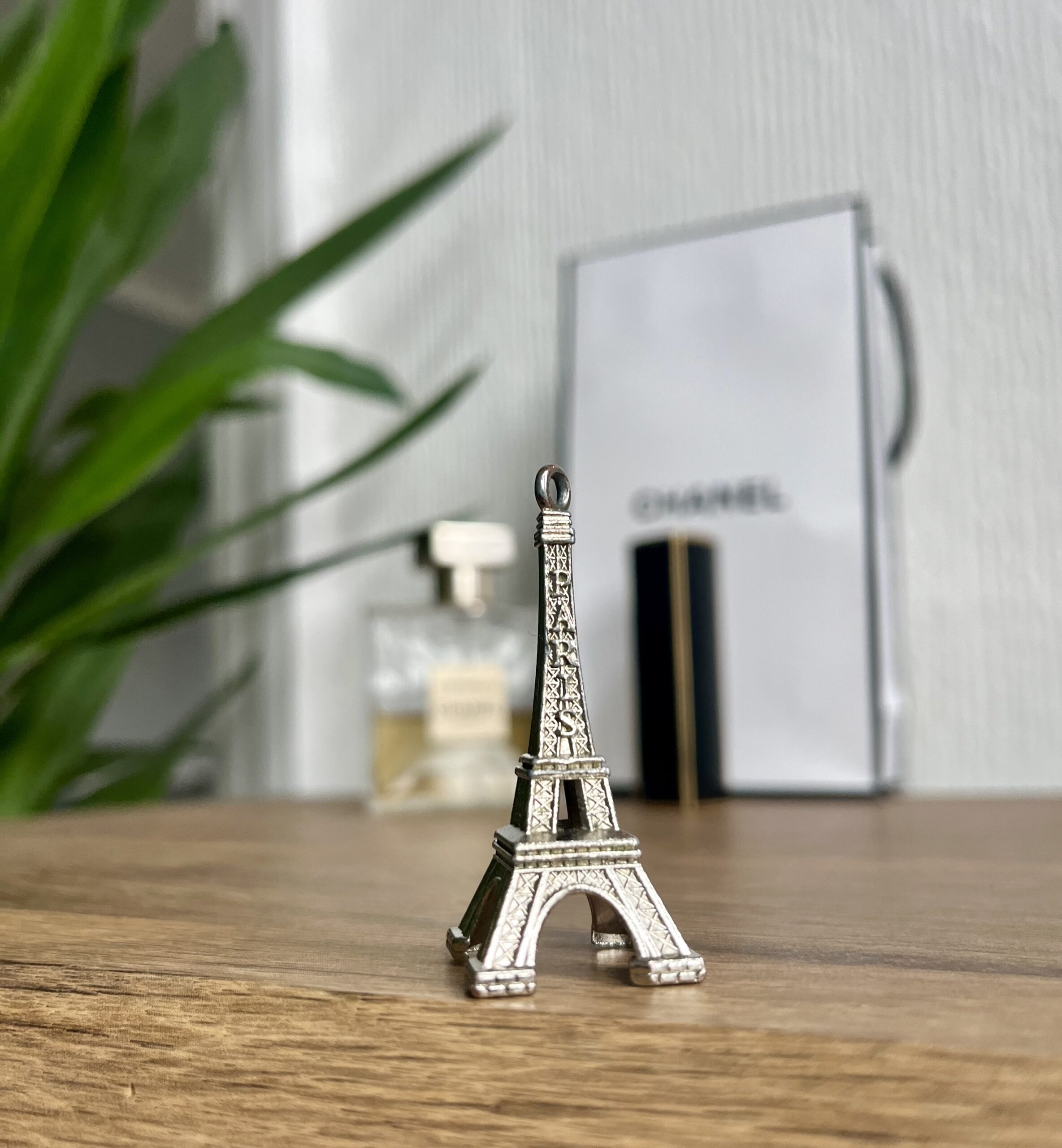
What makes a good travel souvenir?
We might consider particular items to be intrinsically symbolic of a destination, but the research says that what’s considered ‘typical’ is dynamic and mutually negotiated between the destination and the tourist expectation (Husa, 2020). Authenticity can therefore be co-constructed, and souvenirs seen as products of the economic, social and cultural exchange between the destination and their visitors.
Whilst we all have different requirements and ideas about what makes a good souvenir, there are some common themes in the literature. So if you’re keen to enhance your souvenir buying experience these are some things to consider.
Authenticity & the experience of buying
A common theme when it comes to buying souvenirs is the authenticity of the souvenir, with tourists often citing this as their reason for buying a particular item (Shen & Lai, 2022). This authenticity can be defined as the strength of connection between the souvenir and the travel destination e.g. it has been locally made or produced, is representative of that destination, or has a degree of uniqueness (Li. 2023).
An authentic souvenir often comes with a memorable personal story, enhancing the personal connection and meaning behind the buy. I predictably bought a rug when I visited Istanbul many years ago. But the experience felt authentic because I spent a week bartering with my chosen rug seller, Huseyin, before eventually agreeing on a price. Huseyin and I are still friends today and the rug reminds me of the fun we had negotiating.
Souvenirs that connect you to your destination
A memorable souvenir represents a unique experience with your travel destination, and expresses a personal relationship between you and the destination. The experience of buying can contribute to long-lasting memories, and create a stronger sense of attachment to the destination (Shen & Lai, 2022).
Souvenirs for the ethical traveller
For the conscientious traveller a good souvenir also needs to meet certain criteria for the destination you’re visiting. Some studies have exposed ways in which over-tourism can lead to unsustainable economic development and a loss of cultural identity for the host culture, as local artisans strive to adapt and meet the demand for ‘authentic’ souvenirs (Shen & Lai, 2022). ‘Exotic’ souvenirs can also be damaging to the ecosystems of destinations. For example in Bantimurung Bulusaraung National Park in Indonesia endangered species of butterfly are sold to tourists, further endangering the species (Ansari et al., 2019).
An ethically sound souvenir therefore needs to bring business to local communities, whilst ensuring cultural preservation. When done ethically, souvenir trade can enhance cultural identity, and as tourists we can be mindful of the ways in which our souvenir buying can contribute towards the positive economic development of a destination, or not.
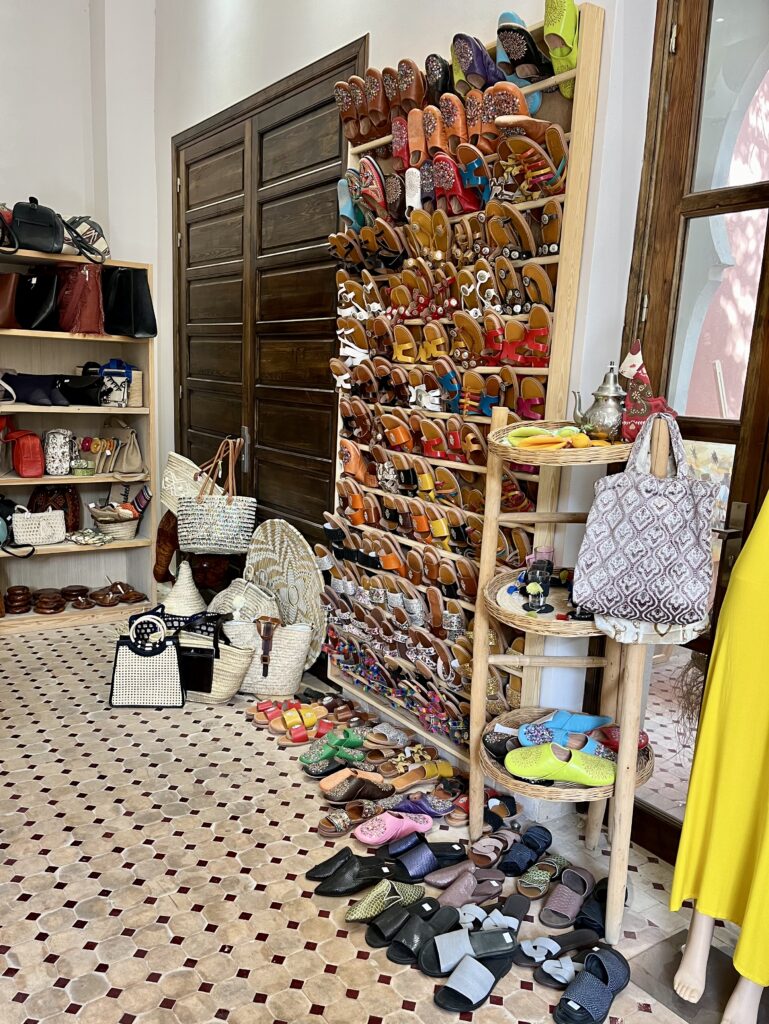
Conclusion
As someone who rarely buys souvenirs I found it fascinating to learn about the psychology behind souvenir buying. It gave me an opportunity to reflect not only on my own reasons for making those purchases, but also those of friends and family members, whose homes are filled with paraphernalia from their travels.
What was the last souvenir you bought? And what significance does it hold for you?
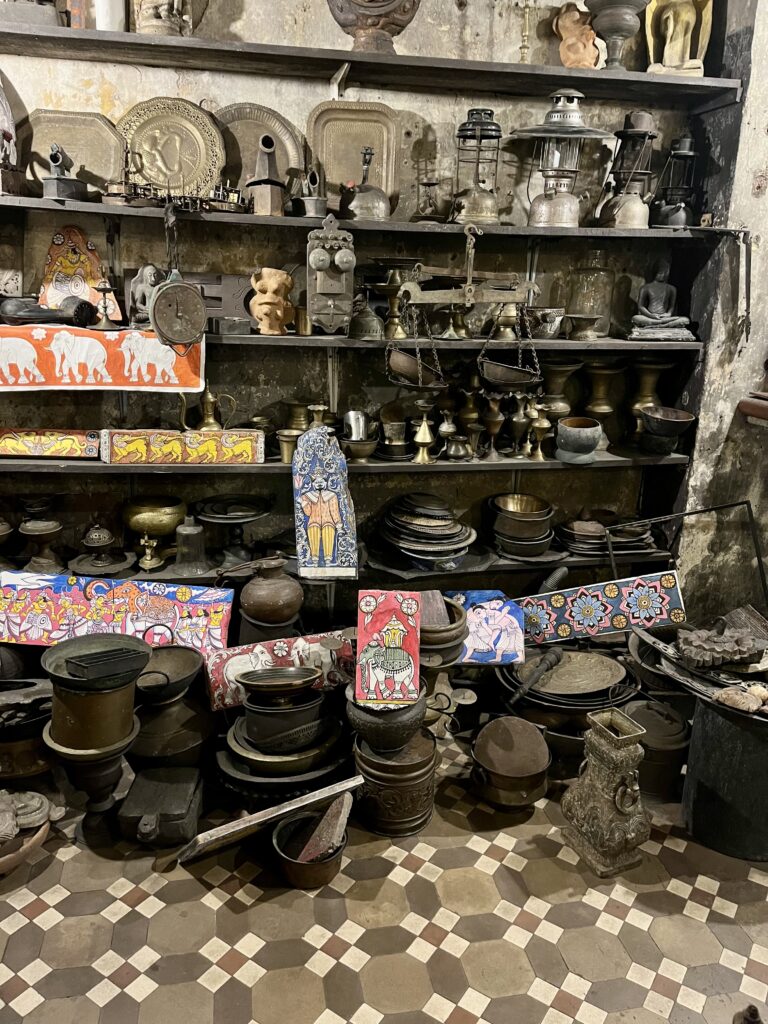
References
Ansari, F., Jeong, Y., Putri, I. A., & Kim, S. I. (2019). Sociopsychological aspects of butterfly souvenir purchasing behavior at Bantimurung Bulusaraung National Park in Indonesia. Sustainability, 11(6), 1789.
Husa, L. C. (2020). The ‘souvenirization’and ‘touristification’of material culture in Thailand–mutual constructions of ‘otherness’ in the tourism and souvenir industries. Journal of Heritage Tourism, 15(3), 279-293.
Li, F. (2023). Souvenir in tourism research: a literature review and future agenda. Tourism Critiques: Practice and Theory, 4(1/2), 15-27.
Morgan, N., & Pritchard, A. (2005). On souvenirs and metonymy: Narratives of memory, metaphor and materiality. Tourist studies, 5(1), 29-53.
Shen, H., & Lai, I. K. W. (2022). Souvenirs: A systematic literature review (1981–2020) and research agenda. Sage Open, 12(2), 21582440221106734.
Wilkins, H. (2011). Souvenirs: What and why we buy. Journal of travel Research, 50(3), 239-247.

